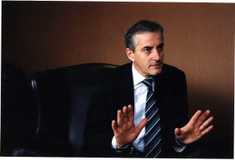Jonas Gahr Støre / Norway
Battle hardened
Norway’s minister of foreign affairs is a firm believer in dialogue, which includes analysing the painful massacre last July. But that doesn’t mean he isn’t prepared to send in the troops overseas if deemed necessary.
Norway’s minister of foreign affairs, Jonas Gahr Støre, is a soft-spoken diplomacy wonk with some tough credentials. Since he was appointed to Jens Stoltenberg’s cabinet in 2005, he has been caught up in a bloody siege in Kabul’s Serena Hotel in January 2008 and narrowly missed the Oslo bomb planted by Anders Behring Breivik in the twin terror attacks last July.
Støre is a tri-lingual voice of reason but also a robust and at times controversial player on the international stage: he has argued the case for active diplomatic dialogue with groups such as Hamas and the Taliban, and supported the Palestinian quest for statehood. At the same time, he is committed to the presence of Norwegian troops in world conflicts.
At home, he’s something of an Arctic pioneer, venturing to the Barents region in an attempt to tackle the issues of sovereignty in the far north and climate change. After the 22 July attacks he has also taken a lead role consoling the national psyche.
Monocle: You’ve just published a paper on Norway’s Arctic regions. Does the High Arctic need to be a higher priority?
Jonas Gahr Støre: Since 2005, when we came to office, it has been my foreign policypriority. You always have to look at drivers of change close to you that you need to deal with. There are three here which are absolutely fundamental. Developing 21st-century modern relations with Russia is one major element in this. The second is climate change, which is happening faster in this region than elsewhere. The third driver is resources – this is a resource-rich region.
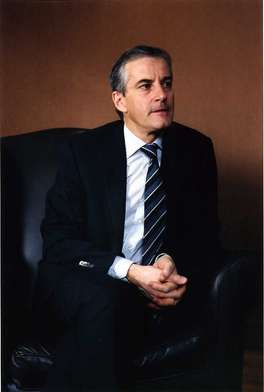
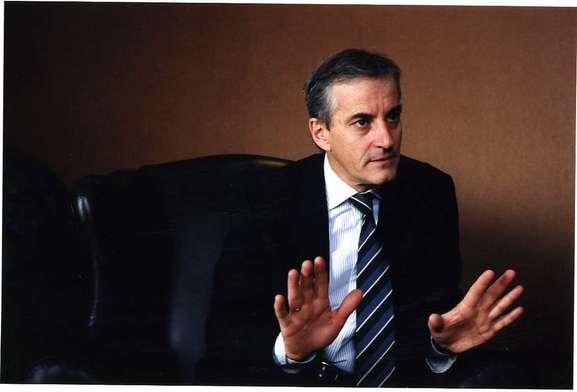
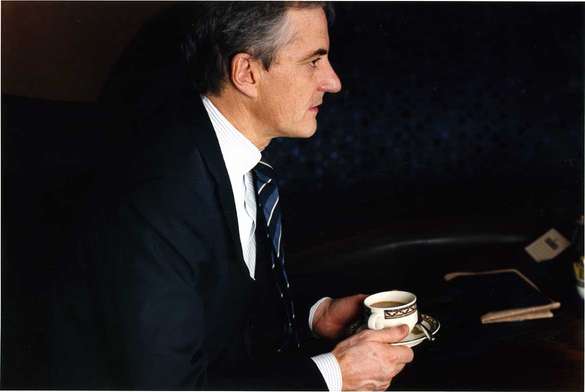
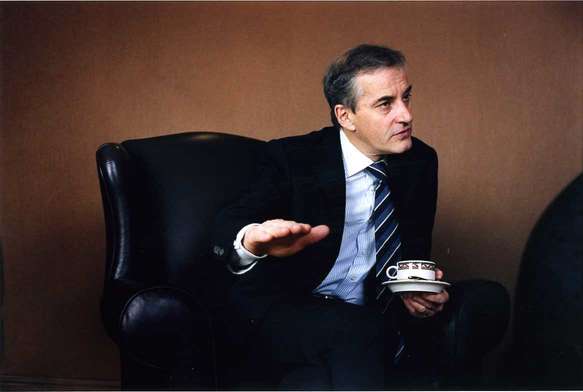
M: We’ve seen a lot of flag planting in the Arctic. Is Norway hoping to lead the way with a better diplomatic dialogue than this?
JGS: The fact that the Russians were able, and I admire the courage, to plant a Russian flag on the seabed of the North Pole doesn’t change the legal facts. The polar areas have always attracted exotic interests. Polar heroes around the turn of the last century critically shaped the national identity of Norway’s emerging state in 1905 when we became independent. But modern issues in the Arctic will be dealt with through negotiations and diplomacy.
M: You’re a great believer in dialogue and have advocated talking to the Taliban. How strategic is Norway in that process?
JGS: For the last decade we have spent more time discussing who we should not talk to rather than defining the ground rules for how you talk to those with whom you disagree. I think it is a lack of sophistication in the 21st century that modern states cannot make the distinction between talking and agreeing. I’m not advocating talking to everybody, all the time, everywhere. I mean there are situations where I clearly wouldn’t talk. With al-Qaeda I don’t see an opportunity.
M: Norway has played a key role in the Palestinian question. Do you see the country taking the lead in other parts of the region?
JGS: I don’t think roles are static. They are based on circumstances. So the role we played in the Middle East in the early 1990s was very much based on the setting then – now it’s different. We have made it an emphasis to have the resources and capacity to engage thoroughly in the understanding of conflict.
M: Is Norway slowly recovering from the shock of the terrorist attacks last year?
JGS: It is such a major event that we will have to live with it for a long time. There are still a lot of people that need to be looked after and taken care of. We can feel that especially in my party. We were the target. We were hit. So there’s a human dimension to this that has not ended, that has just begun.
M: Has it changed the way Norway is viewed by the international community?
JGS: I think it’s hard to tell. What I face when I travel is a huge tide of sympathy, especially from those countries who have suffered terror themselves. The first to call me when I was in my car going into Oslo after the bombing started was the Palestinian president and ten the Israeli defence minister. Then I had 50 more calls. That’s an illustration of a world community rallying around you.
M: What is Norway’s perspective on the eurozone crisis? How concerned are you and what has your role been in negotiations?
JGS: We are not members of the European Union, we are not members of the eurozone, we are linked to the European market through the European Economic Area, which makes us a complete member of the market with equal rights and obligations and a level playing field. So if Europe fares badly it’s bad for Norway. That said, the Norwegian economy is strong; it has sound finances.
M: But you haven’t been at the table during negotiations. Is that frustrating?
JGS: Well I think it’s the result of two referenda, in 1972 and 1994, and I make no secret of the fact that I voted differently in 1994. My deep sense was that Norway should be at the centre of the European project, around the table.
M: Will we ever see a Nordic federation?
JGS: I think you will not see that. But nobody can exclude where things will go. If you read European history you know there are always surprises that you cannot fully imagine. I believe that the Nordic countries are closer than ever. We have commonalities in terms of our social model, which I believe is one of the most interesting things we could talk about. What model can reconcile open economy, growth and equity?

